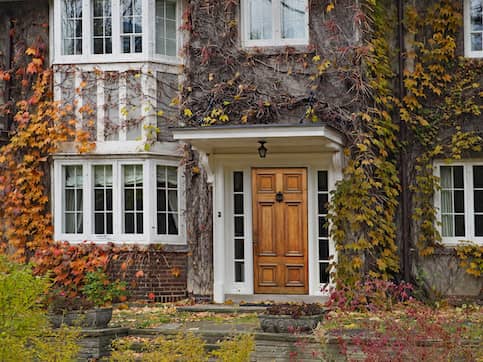What Are Seller Concessions And Why Do They Matter To Buyers?

Buying a house is a complex negotiation between buyers and sellers in which both parties are looking to maximize their profits or limit their costs in the sales process.
Knowing the market you’re hoping to buy a home in is important when it comes to deciding whether to ask the seller for concessions. In a seller’s market, it can be risky to even ask, but in a buyer’s market, sellers are more willing to make concessions.
What are seller concessions and how can you make them work for you? Let’s take a look.
What Are Seller Concessions Or Assists In Real Estate?
Seller concessions – also called seller assists or seller contributions – are closing costs that the seller pays to help the buyer by reducing the amount of cash they need to close. Seller concessions can be a way to lighten the buyer’s load and encourage the buyer to make an offer, especially in a buyer’s market.
This is because sellers have less negotiating power in a buyer’s market. Since there are less buyers looking for homes than there are houses for sale, buyers can afford to make an offer that includes contingencies and a lower price. However, sellers can better entice a fair offer by giving a concession.
On the other hand, in a seller’s market, sellers may be less willing to accept an offer with contingencies because they’re more likely to receive a better offer. That means sellers will be less likely to offer a concession to buyers.
See What You Qualify For
Home Purchase
Home Refinance
Tap Into Equity
How Do Buyers Benefit From Seller Concessions?
Seller concessions can be helpful for buyers who anticipate having trouble covering all of the costs associated with home buying, which can make them especially useful for first-time home buyers. Asking for seller concessions could lighten the financial burden of these costs and make it possible for you to get into the home you want.
Keep in mind, concessions can help the seller as well.
When Might Sellers Be Willing To Agree To Concessions?
Buying a home is a transaction during which you’re able to negotiate a bit to try to get the best deal. Asking for seller concessions is a part of that negotiation process, which is why it’s useful to know when sellers may be more likely to offer concessions.
When It’s A Buyer’s Market
In a buyer’s market, there is high inventory or low demand. The buyer may have more negotiating power because a seller is more inclined to accept an offer if they aren’t sure they’ll get a better one. In this situation, a buyer may be able to request seller concessions as a condition of making an offer.
When A House Is Overpriced
If a house is overpriced compared to comparable properties in the area, a seller may be willing to offer seller concessions instead of having to lower the asking price.
When A Home Has Been On The Market Too Long
Depending on the local market, if a home has been on the market for more than a few weeks, it may raise a red flag for buyers. In this situation, a seller may be willing to make concessions to help sell their home before the slow season starts.
When A Seller Is Trying To Sell During A Slow Season
Even in a seller’s market, some times of the year are busier than others. If a seller needs to move during the winter, there may be fewer buyers looking for a home. In this case, a seller may offer concessions.
When A Seller Needs To Move Quickly
A seller may need to relocate quickly and may want to avoid paying for two mortgages at the same time. In this situation, it may be worth it for them to agree to seller concessions if they feel it will help expedite the sale of their home.
When There Are Problems With A Home
If a home inspection reveals problems with the home that may take time to repair, a seller may want to make concessions as a way to make the offer more acceptable for the buyer.
What Closing Costs Can Seller Concessions Pay For?
Your closing costs will vary depending on your situation, but generally, you should expect to pay 3% – 6% of the home’s value in closing costs. These costs are separate from your down payment, so you’ll sometimes need to have a good chunk of money saved up just to get the keys to your new home, depending on the down payment requirements for your loan.
Since there are so many costs associated with buying a home, the seller might be willing to cover some of the fees associated with the processing and securing of your loan. Some of these fees include:
- Property taxes
- Attorney fees
- Appraisal
- Origination fee
- Title insurance
- Discount points
- Fees for pulling credit
- Processing fees
- Inspection fees
- Insurance
- Homeowners Association (HOA) fees
Are There Limits To Seller Concessions?
Yes, there are, and they’re aimed at preventing inflation in the housing market. The major government authorities in the mortgage market – HUD, Fannie Mae and Freddie Mac – limit seller concessions in real estate contracts by loan type.
Conventional Loans
Conventional loans are loans issued by private mortgage lenders. Conventional mortgages are sold after origination to Fannie Mae or Freddie Mac if they conform to their rules.
The value of seller concessions in conforming loans are limited to a percentage of the purchase price of the home, based on the size of the buyer’s down payment. For a conventional loan, if your down payment is:
- Less than 10%: Seller may contribute up to 3%
- Between 10% – 25%: Seller may contribute up to 6%
- Greater than 25%: Seller may contribute up to 9%
If the property is an investment property, the limit on seller concessions is 2%, regardless of purchase price and the amount of the down payment.
Seller Concessions And Government-Backed Loans
If you’re purchasing a home with a government-backed mortgage, there are hard limits on the amount of seller concessions that are based on the purchase price, not the down payment amount.
- Federal Housing Administration (FHA) loan: Seller may contribute up to 6%
- S. Department of Veterans Affairs (VA) loan: Seller may contribute up to 4%
- S. Department of Agriculture (USDA) loan: Seller may contribute up to 6%
What Are The Pros And Cons Of Asking For Seller Concessions?
If market conditions are favorable, asking for seller concessions can be a great option. These are some of the benefits you can expect when you ask for concessions when making your offer:
- Your out-of-pocket closing costs could be lower.
- You could potentially make a higher offer while having more manageable closing costs.
- You may preserve more of your savings.
However, asking for seller concessions does have possible disadvantages:
- You could end up paying more over the life of the loan with concessions than without.
- If you’re in a competitive market, you could risk having your offer declined by attaching concessions.
It can be tricky to determine whether it’s worth it to ask for seller concessions on your own. It’s best to work with an experienced real estate agent who knows the local market and who can help get you the best deal.
Take the first step toward buying a house.
Get approved to see what you qualify for.
Are There Tax Consequences To Seller Concessions?
While every situation is different, in general, having a seller pay concessions won’t have any major tax implications, and may be eligible for a limited number of deductions. Keep in mind that it’s always best to speak with a tax advisor who can give you advice based on your individual circumstances before asking for concessions.
The IRS has rules dictating how homeowners and recent home buyers are taxed and what deductions they’re given. Most closing costs aren’t eligible for tax deductions, regardless of whether you or the seller pays for them. Currently, the only closing costs you can deduct are home mortgage interest and some property taxes.
The good news is that the mortgage interest tax deduction includes mortgage discount points (money that you pay at closing in exchange for a reduced interest rate), so if your seller offers concessions in the form of discount points, you’ll be able to deduct those points as mortgage interest.
A tax professional can go over these guidelines with you and help you navigate buying a home and taking on a mortgage, both of which come with their own sets of deductions.
The Bottom Line: In A Buyer’s Market, Seller Concessions Help Reduce Closing Costs
The concept of seller concessions can be confusing, especially if you’re a first-time home buyer. However, asking for those concessions in the right market conditions could save you thousands of dollars that you’d probably rather spend on other things. The best way to decide if asking for concessions is the right move is to work with a real estate agent that can give you well-informed advice.
Ready to apply for a mortgage? Our Home Loan Experts can help you find the right mortgage for you.
See What You Qualify For
You can get a real, customizable mortgage solution based on your unique financial situation.











